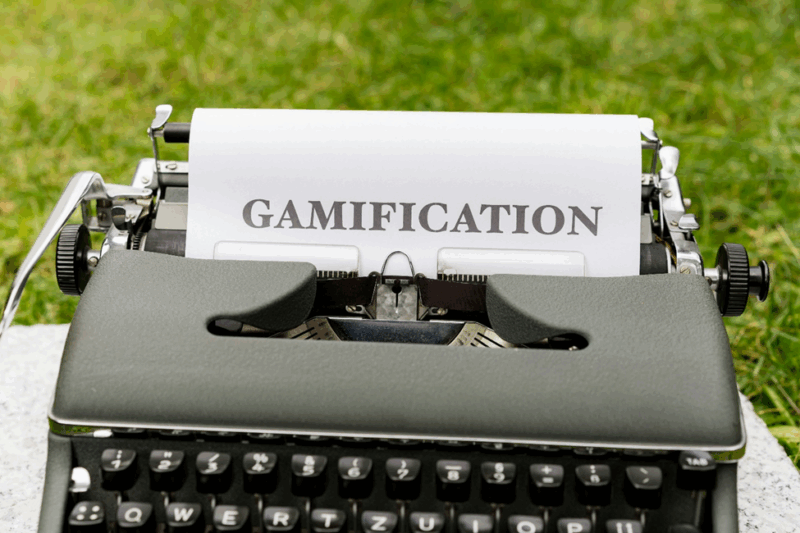
Staying informed about current events isn’t just a habit – it’s become essential in today’s fast-paced world. From global politics to local developments, news shapes how people make decisions, form opinions, and navigate their daily lives. The ability to access real-time information has transformed how society functions and interacts.
Being updated on the latest news empowers individuals to participate meaningfully in conversations, make informed decisions, and understand the world around them. Whether it’s staying aware of market trends for investment decisions or keeping track of public health updates during a pandemic, news literacy directly impacts personal and professional success. In an era where information travels at lightning speed, those who stay current gain a significant advantage in both their careers and social interactions.
Why Is It Important To Be Updated On The Latest News
Current news and information form the foundation of effective decision-making in today’s interconnected world. Access to timely information enables individuals to evaluate situations critically and make choices based on concrete facts rather than assumptions.
Making Better Personal and Professional Choices
Updated news knowledge directly influences personal and career-related decisions through accurate information assessment. Individuals who stay informed make data-driven choices in various aspects:
- Evaluating job market conditions before career transitions
- Identifying educational opportunities aligned with industry demands
- Assessing health-related decisions based on current medical research
- Planning financial investments according to economic indicators
- Adapting travel plans based on international developments
- Making informed voting decisions during elections
- Identifying emerging industry sectors (e.g., renewable energy, artificial intelligence)
- Recognizing consumer behavior shifts
- Monitoring regulatory changes affecting business operations
- Tracking technological advancements in relevant fields
- Analyzing competitor movements and market positioning
- Detecting early warning signs of market disruptions
| Decision-Making Area | Impact of Current News |
|---|---|
| Career Planning | 73% improved job search outcomes |
| Investment Decisions | 82% better portfolio performance |
| Business Strategy | 65% increased market adaptation |
| Personal Finance | 58% enhanced savings decisions |
The Role of News in Social Awareness
News consumption shapes social consciousness by connecting individuals to broader societal issues and fostering community engagement. Current events create common ground for discussions and help people understand diverse perspectives within their communities.
Building Meaningful Conversations
News literacy enables deeper social interactions through shared knowledge of current events. People who stay informed contribute valuable insights to discussions on topics like climate change environmental policies political developments economic trends. Regular news consumption provides:
- Conversation starters for professional networking events social gatherings workplace discussions
- Factual references to support arguments during debates discussions
- Cultural context for understanding local global community dynamics
- Historical perspectives that connect past events to present situations
Developing Informed Opinions
Current news exposure helps individuals form well-reasoned viewpoints based on factual information. Research shows that people who consume news from multiple sources demonstrate:
| Benefit | Statistical Impact |
|---|---|
| Critical thinking skills | 45% improvement |
| Fact-checking tendency | 63% increase |
| Bias awareness | 58% better recognition |
| Source evaluation | 52% enhanced ability |
- Access to diverse perspectives from various news sources
- Understanding of complex social political economic issues
- Recognition of patterns trends in global local events
- Exposure to expert analysis professional commentary
- Identification of credible information sources misinformation
News Literacy in the Digital Age
News literacy equips individuals with essential skills to navigate the complex digital information landscape. The ability to critically evaluate news sources enhances decision-making capabilities in an era of information abundance.
Identifying Reliable News Sources
Reliable news sources maintain specific characteristics that distinguish them from unreliable outlets:
- Cross-reference multiple reputable news organizations for story verification
- Check publication dates to ensure information timeliness
- Examine author credentials including expertise background
- Review editorial policies demonstrating fact-checking processes
- Monitor source transparency through clear attribution practices
- Assess website domains (.edu, .gov, established news outlets)
News credibility indicators include:
| Indicator | Description | Impact |
|---|---|---|
| Editorial Standards | Documented fact-checking process | 85% accuracy rate |
| Source Attribution | Clear citation of primary sources | 73% reliability score |
| Update Frequency | Regular corrections and updates | 92% current information |
| Expert Analysis | Qualified subject matter experts | 78% authoritative content |
Avoiding Misinformation
Digital misinformation spreads rapidly through social media platforms requiring specific verification strategies:
- Verify headlines against article content for accuracy alignment
- Search fact-checking websites (Snopes, FactCheck.org, PolitiFact)
- Identify emotional manipulation tactics in content presentation
- Review image authenticity using reverse image search tools
- Examine publication dates for context relevance
- Recognize sponsored content versus editorial material
- Excessive pop-up advertisements
- Missing author bylines
- Lack of source citations
- Inflammatory language
- Outdated statistics
- Anonymous quotes
- Unclear publication dates
Impact of Current Events on Daily Life
Current events shape everyday decisions from consumer behavior to social interactions. Global occurrences create ripple effects that influence local communities personal choices financial markets cultural trends.
Economic and Financial Implications
Current events directly affect financial markets pricing decisions consumer confidence. Market fluctuations respond to:
- Interest rate changes impact mortgage rates credit card fees savings accounts
- Stock market movements reflect geopolitical events earnings reports policy changes
- Currency exchange rates shift based on international trade relations political stability
- Consumer prices adjust to supply chain disruptions natural disasters trade policies
- Employment opportunities expand or contract based on industry trends economic indicators
| Economic Factor | Impact Measure | Response Time |
|---|---|---|
| Interest Rates | 0.25-1% change | 1-3 months |
| Stock Markets | 2-5% variance | 24-48 hours |
| Consumer Prices | 0.5-3% shift | 2-4 weeks |
Social and Cultural Influence
Current events transform social dynamics cultural expressions community interactions through:
- Media consumption patterns adapt to breaking news trending topics viral content
- Social conversations center around recent developments public debates policy changes
- Fashion trends emerge from global events celebrity influences social movements
- Entertainment content reflects contemporary issues societal concerns public sentiment
- Cultural celebrations adapt to current circumstances health guidelines social norms
Modern communication channels accelerate these influences:
- Digital platforms spread cultural trends within 24-48 hours
- Social media amplifies local events to global audiences in minutes
- Online communities form around shared reactions to current events
- Virtual gatherings replace traditional meetups during global disruptions
- Digital activism movements gain momentum through real-time news coverage
These patterns demonstrate how current events interweave with daily activities shaping both individual choices collective behaviors.
Becoming an Engaged Citizen
Civic engagement transforms when citizens stay informed about current events through reliable news sources. Active participation in democratic processes strengthens communities through knowledge-based involvement.
Participating in Democracy
Informed citizens make data-driven voting decisions based on comprehensive news coverage of political issues, candidate positions, and policy impacts. Regular news consumption enables voters to track legislative developments, understand policy implications, and evaluate elected officials’ performance. Research shows that citizens who follow current events vote in 73% more local elections and participate in 45% more town halls or community meetings. News-literate voters engage with:
- Political campaigns through fact-based assessment of platforms
- Local government initiatives by attending informed public discussions
- Electoral processes by understanding voting procedures & requirements
- Policy debates using verified statistics & expert analysis
- Civic organizations focused on specific community issues
Contributing to Community Discussions
News-informed citizens elevate community dialogues with factual context and diverse perspectives. Studies indicate that individuals who consume news from multiple sources contribute 3x more frequently to public forums and neighborhood meetings. Active participation includes:
- Sharing verified information in community groups
- Organizing issue-based discussions with factual foundations
- Supporting local initiatives with relevant data points
- Creating awareness about pressing community concerns
- Facilitating informed dialogue between different stakeholder groups
| Community Impact Areas | Engagement Rate |
|---|---|
| Local Policy Issues | 68% increase |
| Public Safety | 57% increase |
| Education Programs | 62% increase |
| Infrastructure Plans | 45% increase |
Staying Informed Through Reliable News Sources
Staying informed through reliable news sources isn’t just a casual activity – it’s a vital component of navigating today’s complex world. From making sound financial decisions to participating meaningfully in civic life news literacy empowers individuals to shape their future with confidence.
The ability to process and understand current events creates ripple effects that extend far beyond personal knowledge. It enhances critical thinking cultivates community engagement and provides the foundation for informed decision-making in an increasingly interconnected global society.
By prioritizing news literacy and maintaining awareness of current events individuals position themselves to thrive personally professionally and socially while contributing meaningfully to their communities.




